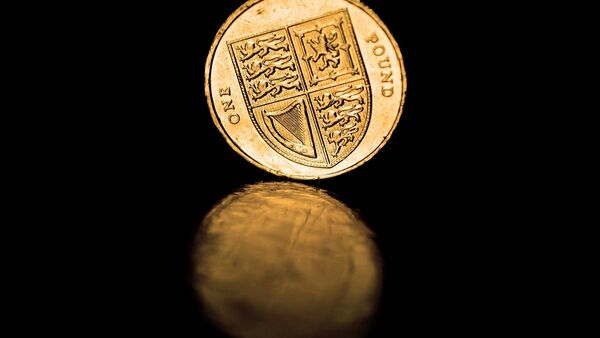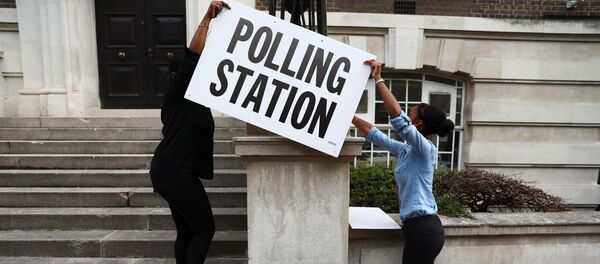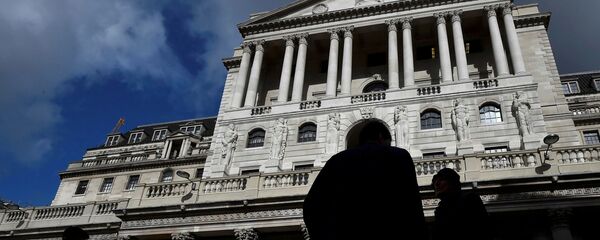Kristian Rouz – The Eurozone economy posted a visible improvement in the first half of this year, with inflation slightly picking up and economic confidence on the rise.
The British economy, despite the heightened inflationary pressures and underperforming domestic consumption, maintains a strong and steady outlook, with manufacturing and construction gradually gaining momentum in the post-Brexit reality. During their meeting on 15th June, the BOE policymakers voted narrowly – 5 to 3 – to keep base borrowing costs unchanged at 0.25 per cent, which means the central bank sees the economy as almost strong enough to withstand the challenges to credit and consumer activity posed by higher interest rates.
"The hung parliament resulting from last week's election has increased the risk of a slowdown in UK GDP growth due to heightened political uncertainty," Jennifer McKeown of Capital Economics said.
The BOE has maintained its bond-buying program to provide the economy with money liquidity, buying out some £10 bln in corporate debt and £435 bln in government bonds, or gilts. Overall, UK inflation rose to 2.9 percent last month from 2.7 in April, which might pass on to the GDP expansion, contributing to quicker growth, unless domestic consumption brakes sharply.
In the Eurozone, meanwhile, the European Central Bank (ECB)’s years of ultra-accommodative monetary policies of the have finally produced modestly positive results, driving the economic expansion in the 19-country bloc. The zero-to-negative interest rates, and roughly 1 trln euros of assets, mainly government bonds bought by the ECB, have resulted in a 0.5-percent growth in the bloc in the first months on the year, whereas the UK economy grew by 0.3 percent.
Eurozone inflation is still below the ECB’s 2-per cent target, at 1.9 per cent, and overall the economic growth on the continent looks more balanced than that in the UK, where the fluctuations of the pound sterling have resulted in swings and roundabouts in manufacturing, consumption and foreign trade.
"The euro zone has led the developed world upturn, according to the PMI (Purchasing Managers’ Index) surveys, with the region enjoying its fastest growth for six years so far in the second quarter," Bernard Aw of IHS Markit wrote in a note.
Now that the Tory-DUP (Democratic Unionist Party) coalition in the UK is firmly committed to Brexit, and likely within a ‘soft Brexit’ scenario, both Britain and the EU could reach an agreement without a major political crisis, backed up by the solid macroeconomic developments on both sides.
There is hardly any grudge or hostility on either side, as evidenced by the recent remarks from the German Economy Minister Brigitte Zypries.
"I think it would be great if they were to reverse the Brexit decision," Zypries said. "However, this scenario appears relatively unrealistic to me."
Brexit allows the German manufacturers to dominate the internal EU market, as the UK industrial output will be targeting the Commonwealth markets in the first place. However, the two-year process of Brexit negotiations might still be challenging, as sides might have disagreements over customs tariffs, competition in the third markets, and energy, particularly, oil and natural gas production in the North Sea.
"This (Brexit talks) won't be easy, but a compromise is possible," Zypries said, reflecting the viewpoint that amidst the economic upturn on both sides, neither the UK or the EU would be adamantly insistent on their agenda to prevail in a zero-sum game, which it could be in case of economic contraction.





